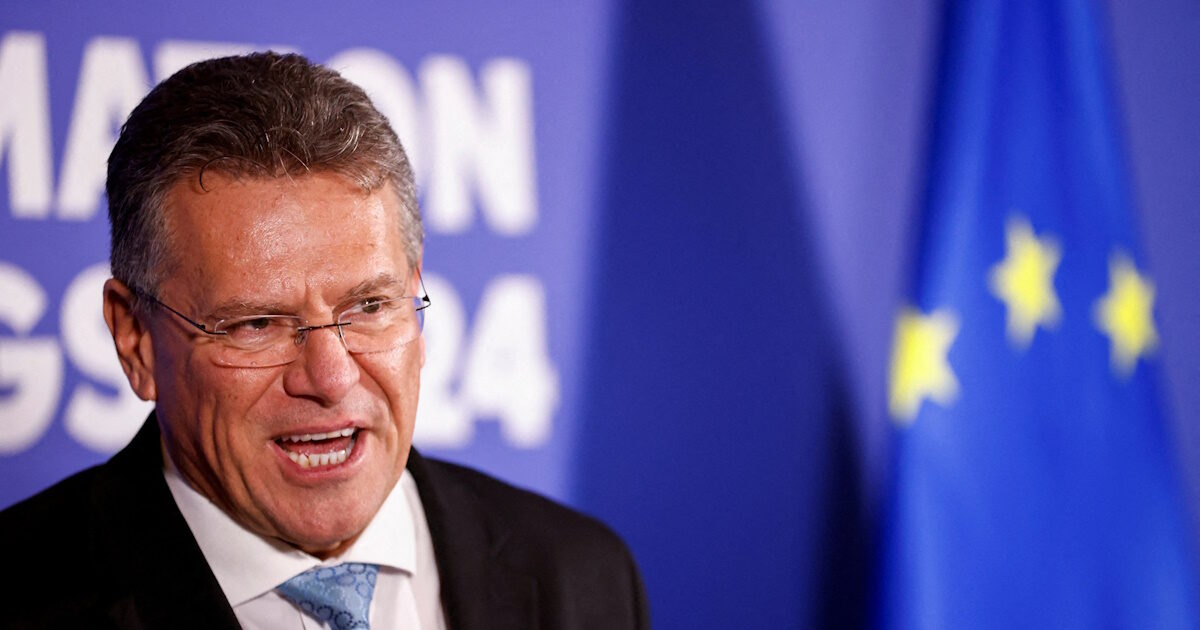Minimum was the progress made between the European Union (EU) and USA Concerning the attempt to bridge trade, as US government officials Donald Trump said that most of the US duties imposed on Europe would not be abolished.
EU trading department leader Maros Sefsovic, according to a Bloomberg report, left the meeting with little clarity on US stance on duties, difficulty identifying the goals of the American side. He met for about two hours with US Secretary of Commerce, Howard Lutnik and commercial representative Jameson Green in Washington yesterday (14.4.2025).
US officials said 20% “reciprocal” duties – which have been reduced to 10% for 90 days – as well as other duties targeting areas such as cars and metals will not be immediately abolished, said Bloomberg sources, who spoke under the term.
Trump announced a sweeping series of duties this month in his attempt to rearrange the global trade system, bring back to the US jobs to manufacturing and increase revenue to pay the tax cut. His government also made plans to impose duties on semiconductor and drug imports. All Trump’s new duties are affecting about 380 billion euros of EU goods.
The EU has agreed last week to delay the implementation of a series of US retaliations for the 25% duties imposed by Trump on Union’s steel and aluminum exports. This move was made after the US president reduced the so -called reciprocal rate to most EU exports for the same period.
The EU has said that its measures, which are aimed at US products worth about 21 billion euros, will be implemented after 90 days if the negotiations do not produce satisfactory results while already working to prepare more countermeasures if this scenario is implemented. At the same time, it is rushing to conclude trade agreements with countries around the world and to improve the operation of its single market.
While US officials suggested that sectoral measures had to remain, some of the cars’ duties could be offset by increasing investment, production and exports from the US, sources said. They speculate, however, that there is no way to stop contributions from increasing in the future if US exports are not reinforced.
The EU has proposed both sides to abolish all duties in industrial goods, including cars. The US has so far rejected this proposal.
The US would like to see European chemical companies to produce more substances used in the US pharmaceutical industry, incorporate supply chains, have selective supplies, and suggested that the Union increase the price of its medicines.
US Vice President Jay Di Vance has previously stated that Europe is paying less for many of its medicines because Americans are subsidizing its health care.
Regarding steel and aluminum, as well as possible future copper contributions, the US wants the EU to submit a proposal. Sources say that in the negotiations it was not clear whether some of the ideas made had broader support within the government, but noted that many were not compatible with the WTO rules.
The Commission has elaborated a “Terms Bulletin” with potential areas to negotiate, including lower duties, regulations and standards, Bloomberg said earlier.
The EU has also proposed to increase the US liquefied natural gas markets, but Trump officials have so far shown a little willingness to explore this route as an alternative to duties.
They have insisted on discussing what the US perceives as non -tariff barriers, such as regulations on digital and artificial intelligence, as well as food standards. Discussions between the two sides will continue on a technical level.
